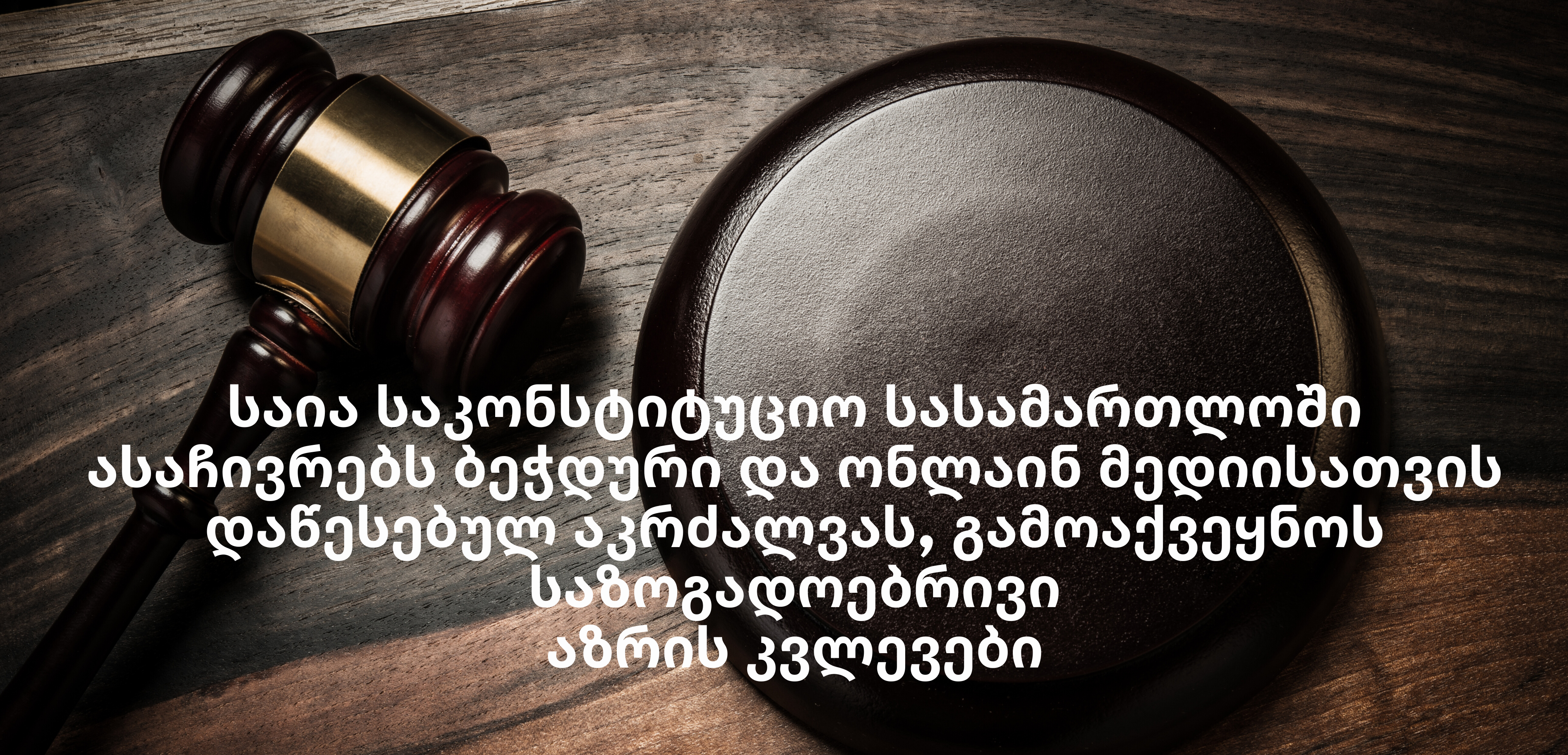


Today the Georgian Young Lawyers' Association filed a new lawsuit in the Constitutional Court on behalf of the network of information centers (the publisher of online platform Reginfo.ge). GYLA appeals against the norm that prohibits print and online media from publishing public opinion polls for 48 hours prior to elections and up to 20 hours on polling day. GYLA considers disputable the same regulations with regard to print and online media as it applies to broadcast media (television and radio). It is particularly problematic for the plaintiff to be authorized by the Georgian National Communications Commission (GNCC) to draft an offense protocol. The function of the Georgian National Communications Commission has always been to regulate broadcast media; the appealed norms have expanded the authority of this commission and have provided print and online media as well.
It is also noteworthy that the challenged norms only prohibit the Internet media from publishing public opinion polls within 48 hours before the electoral precincts are closed. The purpose of this prohibition is to avoid manipulation of the will of the electorate shortly before the election. It should be noted that this prohibition does not apply to individual users of the social network who may initially post such public opinion surveys on their Facebook page or those who share such status. If the purpose of prohibition the publication of public opinion polls is to avoid manipulation of the will of the voters, an individual Facebook user may also manipulate on their will, but the prohibition does not apply. Thus, the GYLA considers that the prohibition is not an appropriate means of achieving a legitimate aim and therefore contradicts the freedom of expression recognized in Article 17.
In general, the Internet is a unique platform for the free idea market. The Internet gives every person the opportunity to bring his or her opinion to the wider public and thus engage in public discussions. The Internet gives every person the opportunity to bring his or her opinion to the wider public and thus engage in public discussions. The Internet excludes the possibility of dominating one or more worldviews or positions. Anyone through the Internet can, without the help of the government, counteract false information with the right information, and use the right of reply in the event of defamation. Given that the Internet, including the social network, is a universal and inexpensive means of expression unlike broadcast media, the freedom of expression and the Internet recognized by Article 17 of the Georgian Constitution contradicts the inclusion of this segment of the media under the regulation of the Georgian National Communications Commission. The ability to disseminate and receive diversified information in the Internet minimizes the risk of manipulation on the will of voter on the Election Day, eliminating the need for regulation the Internet by the Commission.
The Georgian Young Lawyers' Association is proceeding the case with the support of the Open Society Georgia Foundation.
ჯ. კახიძის #15, თბილისი, საქართველო, 0102 ; ტელ: (995 32) 95 23 53; ფაქსი: (995 32) 92 32 11; ელ-ფოსტა: gyla@gyla.ge; www.gyla.ge
15, J. Kakhidze str. 0102, Tbilisi, Georgia. Tel: (995 32) 95 23 53; Fax: (995 32) 92 32 11; E-mail: gyla@gyla.ge; www.gyla.ge